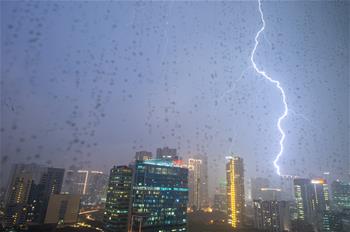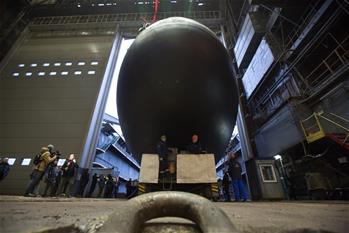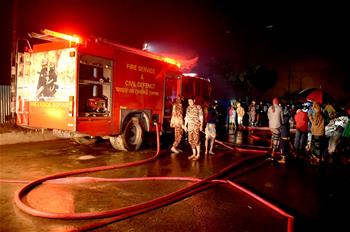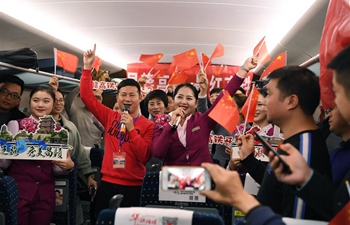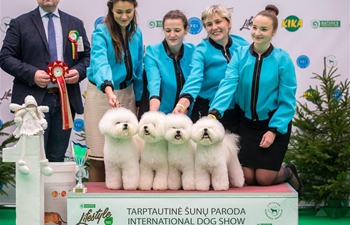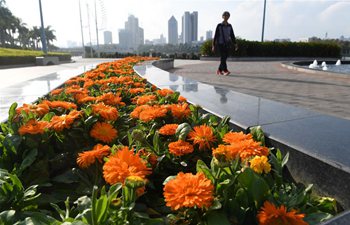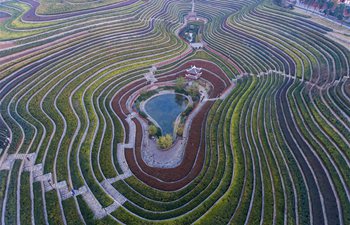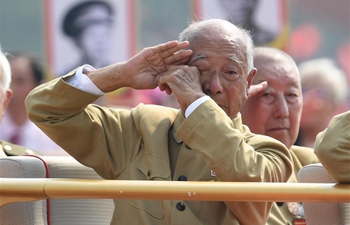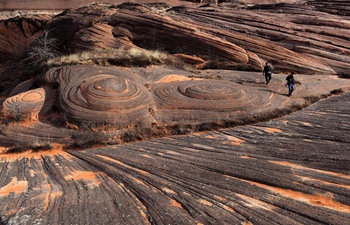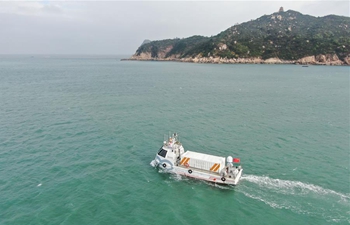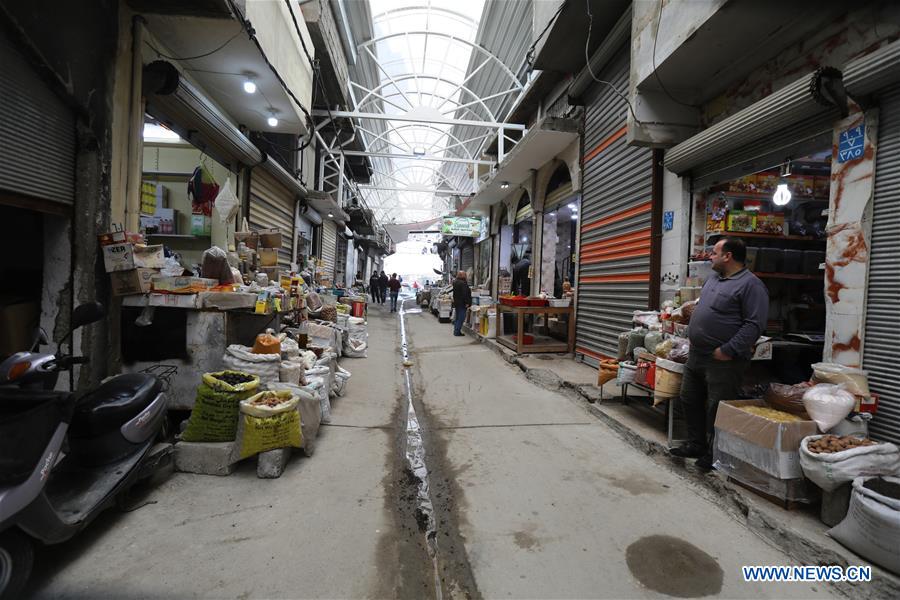
Photo taken on Dec. 23, 2019 shows the al-Attareen market in the old city of Mosul, Iraq. In the old city of Mosul, still in ruins and scarred by the intensive clashes between IS militants and Iraqi security forces, many shops in the ancient al-Attareen market started to open their doors. (Xinhua/Khalil Dawood)
MOSUL, Iraq, Dec. 27 (Xinhua) -- In Iraq's second largest city of Mosul, joy and hopes reappear on the faces of the shop owners of the city's oldest market, after two years when Iraq declared full liberation from the extremist Islamic State (IS) group.
In the old city of Mosul, still in ruins and scarred by the intensive clashes between IS militants and Iraqi security forces, many shops in the ancient al-Attareen market started to open their doors.
At the entrance to the market, dozens of fish sellers were located on the main road of the market, bragging about having the best fish to attract customers.
The market, which was damaged and abandoned during liberation battles, used to house some 1,000 small shops, and about 40 percent of them sold spices, condiments and incense.
Hashim Walid, 56, told Xinhua that he has been working in his restaurant in the al-Attareen market since the beginning of the reconstruction process, as his customers are mainly the construction workers and other shop workers.
"About 20 percent of the shops have returned to the market, and the municipality has paved the roads, built the roof and restored electricity and water," said Walid, while serving his customers with rice and beans broth.
"My ancestors have been working in the market for centuries, and the market is important to Mosul. It is a heritage place and the commercial center of the city and many prominent merchants of Mosul were working here," Walid said.
"Life has returned to the traditional markets of al-Attareen, as well as adjacent al-Saffareen and al-Qumash market, or the textile market. The rebuilding of the rest of traditional markets of the old city center is underway," Walid added.
"Now the situation is better. Three months ago, I was the only one in the market, but now more people are reopening their shops with more people returning," Ali Saadi, a butcher said.
"It was very hard in the beginning until more shops reopened and the business booms with customers from other neighborhoods coming for shopping," Saadi added.
Saadi is working hard to rebuild his destroyed house near the Tigris River in old city center, and he has so far managed to rebuild some 70 percent of his house.
"This year is better than last year, and if the government pays some compensations for the destroyed houses, we would see all the people return quickly to the old city," Saadi said.
For the people of Mosul, the heritage markets have constituted a special identity in the old city as many of Mosul's ancient families used to live together for centuries despite their cultural and religious diversity.
Bashar Hazim, a customer, who came from the eastern side of Mosul for shopping in the market, said that "if this market returns to normality that means the return of the whole Mosul to normality, because this market is the history of the city and a vital commercial center."
Mosul, located about 400 km north of the capital Baghdad, was seized by the extremist IS militant group in June 2014.
The devastation in Mosul is ranged from 10 percent in some areas to 100 percent like in the old city center, where some 11,500 buildings were destroyed, according to the provincial government's figures.
In December 2017, Iraq declared full liberation of Iraq from the extremist IS militant group.




